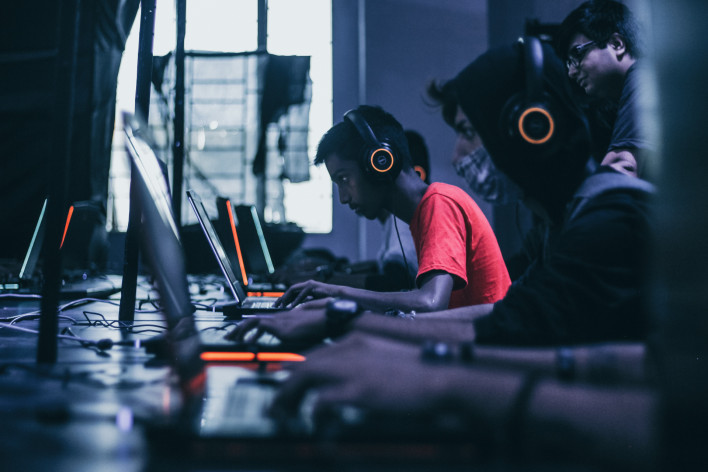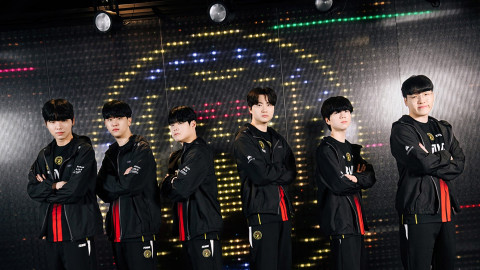
Fans of video games have an intellectual advantage!
You feel the tension and can't stop, you understand that it's an addiction, but you keep playing and looking for loopholes? What is going on in your brain right now? Why do some players feel aggressive and others the opposite? Lots of research shows us the other side of the coin - scientists tell us that video games can help us learn faster, acquire the ability to react quickly, and improve spatial and bodily-kinesthetic intelligence. While playing slope unblocked games, you will improve your concentration and analytics skills. Red cubes are on your way for you to be focused!
What bonuses do gamers have?
Development of spatial thinking, concentration, empathy, and multitasking, and that's not the end of the list. It all depends on the genre of the video game. Action gamers have visual acuity, they can see more accurately at a greater distance, and react quickly in situations with poor visibility. But the improvement of such qualities was observed only in the group of people who played action games like Ghost Recon Wildlands, and the acquired skills were maintained for five months. And people who like more relaxed games like The Sims did not observe similar changes.
Both children and adults were capable of empathy and showed care for strangers in real life because, in simulated situations, they behaved the same. Because players are better at noticing other people's feelings, emotions, and reactions, they behave more attentively to those around them. Video games affect how well they get along with people in real life, but we see the opposite effect in people who enjoy more violent games. As a result, some video games make young people more empathetic and sympathetic.
So is playing video games harmful? The answer is - "All depends ."Selection criteria, age group and characteristics of the culture in which you grew up. The video game genre also affects how useful the game will be to the gamer.
Now we see that it is impossible to raise a modern genius without computer games and computer knowledge. Researchers at the University of Texas have recognized that some violent computer games can be beneficial: they improve memory, observation, and remember and process information better.
What games are most popular for the Z Generation?
Generation Z fell on the active development of the virtual world. Representatives of this generation since childhood are surrounded by a variety of computer games, technologies, and smart gadgets at the same time: the phone, tablet, computer, consoles, and other devices that allow to combine many realities and unite people-players. If you compare them with Millennials, for example, they had only one main gadget and an additional device - a phone and headphones.
At preschool age, Minecraft is popular. Also, children like specialized games, including geography, biology, etc. Both children and teenagers are attracted to the variety of games. Teens see a lot of niche appeal, so now, it's hard to predict the trends in choosing favorite games for the first time in a long time. Some like Horizon, others prefer World of Tanks. There are many giants, and Generation Z is trying many things. Modern games touch on many aspects of life, such as interacting with people: if you participate in a multi-role computer game, you learn social, behavioral, and reputational skills.
What are non-gamers missing?
More than 1,000 people were surveyed as a result of the study. The genre of video games was taken into account and the location of the experience. The study found that gamers often prefer to live together with their family or friends. About 57% were convinced that the most important thing in life is friends and family. The following data was also interesting: 52% of gamers are male, and 48% are female. It turns out that video game fans work full time instead of non-gamers. The difference was 3%. Gamers are also passionate about all electronics and spend most of their time on various gadgets consuming media content on the Internet.
How 3D games impact children
Scientists have proved that 3D games can develop memory: looking at a specific example - "three-dimensional" Mario 3D World, scientists at the University of California at Irvine, found that the game can improve memory performance by 12%.
In addition, games can help people with brain damage. The passion for games helps students develop analytical and decision-making skills. This directly affects and helps teenagers' academic performance. When playing games, you have to face puzzles that require erudition, science knowledge, reading, and math skills. Sometimes the player needs to understand some chemistry principles, so he thus comprehends the science.
For example, the game Minecraft is adapted for school education and used for years in secondary schools. According to the developers, it will help students learn geometry, develop critical thinking and teamwork skills.
Because of the COVID-19 pandemic, many children have lost their chances to play with their friends and classmates, and now they are suffering from a lack of additional development. However, given the importance of children's interaction with their peers, encouraging and allowing some video games to be played in real-time with their friends will give children the opportunity to express what they are experiencing on a particular day, time or situation.
Every child is unique and distinctive and needs the opportunity to express his or her abilities. A small amount of time per day set aside for games will give children the opportunity to explore their world on their own and help develop their imagination.
-
 Guest Reporter
Guest Reporter
Sort by:
Comments :0





